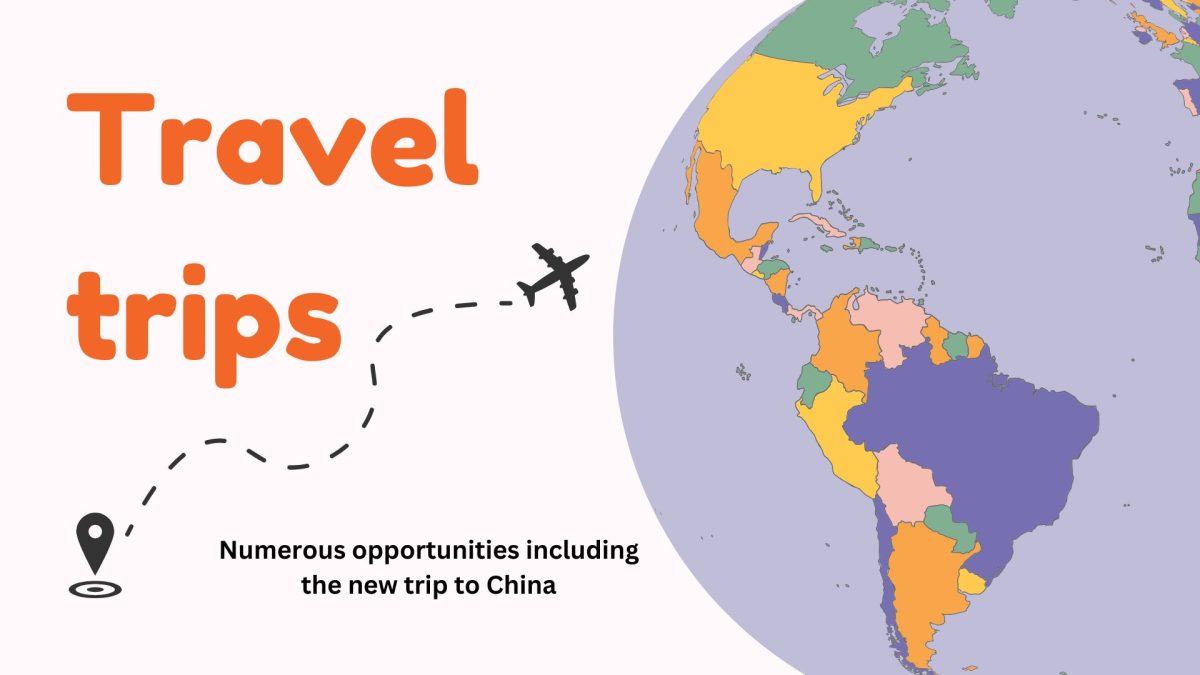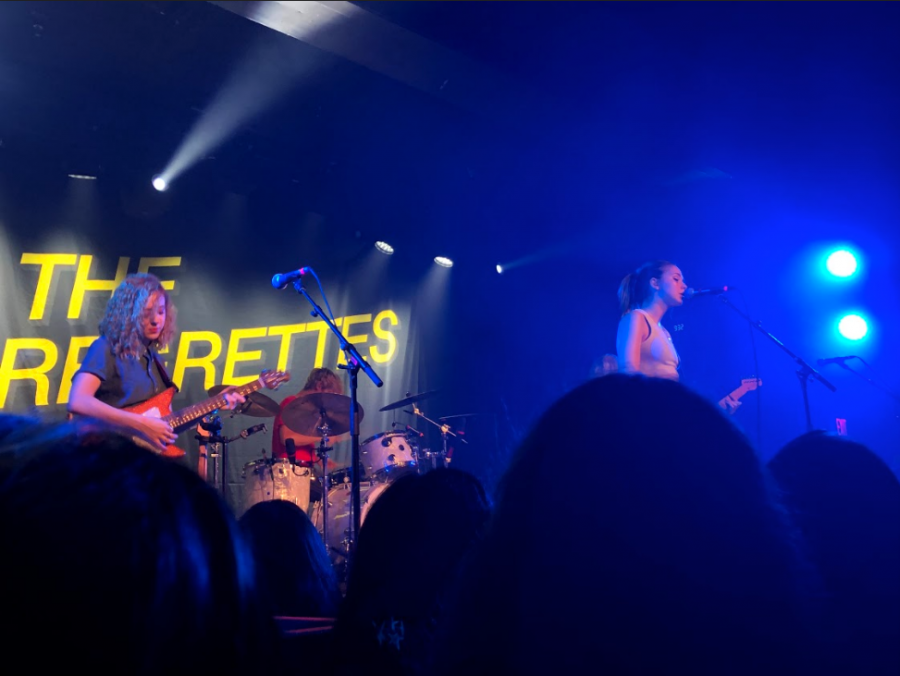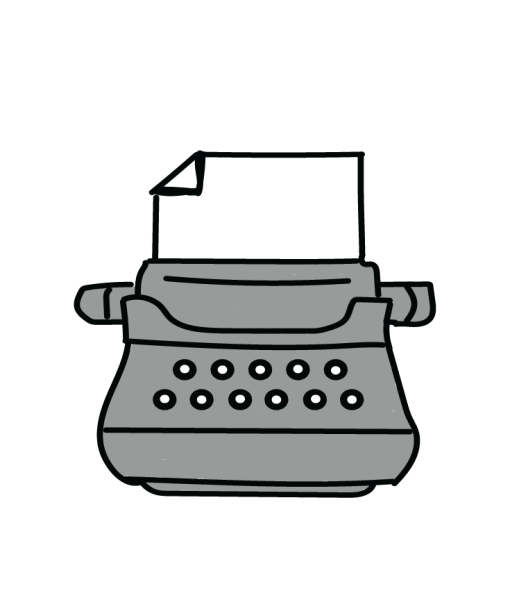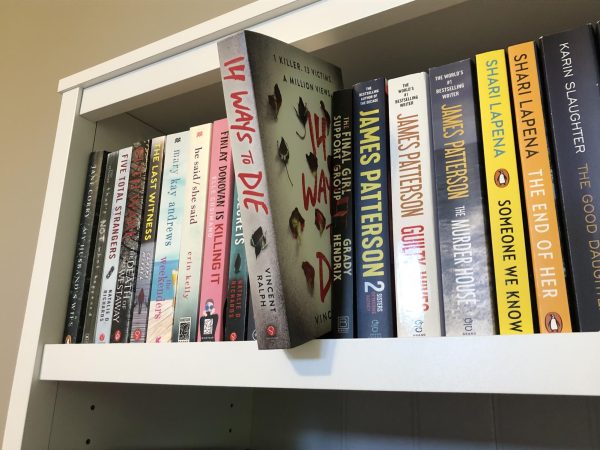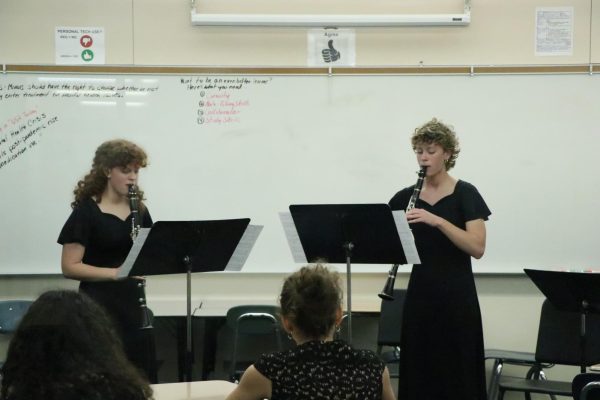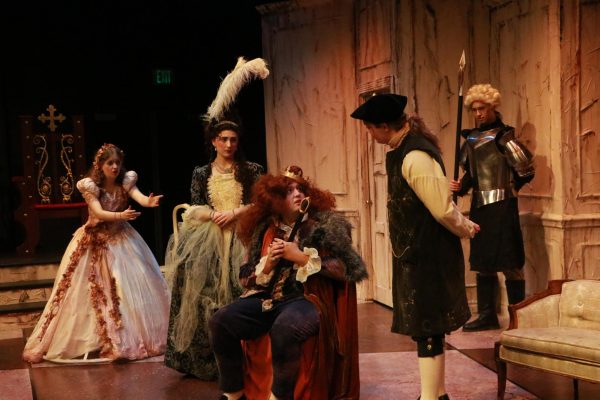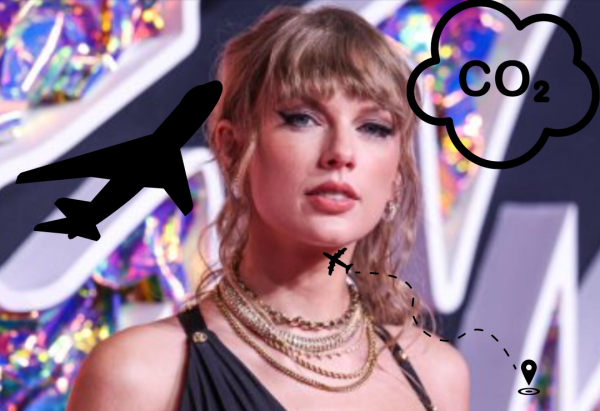How Portland loved the Regrettes
Front woman, Lydia Night, and guitarist, Genessa Gariano during the Wonder Ballroom performance.
It was a sea of people, all holding up middle fingers and cursing to the lyrics of “Seashore” by the Regrettes with frontwoman Lydia Night. Wednesday, Oct. 16 brought punk rock band, The Regrettes, to Portland’s Wonder Ballroom on a dark rainy night.
After passing through security, you enter a dimly lit ballroom with smoke wafting off the stage, and the smell of vape and weed passing through everyone’s vicinity. The 21 plus section, reserved for those hoping to catch a drink, was mainly populated by parents who brought their kids to see the show, but the main spectacle was the floor where a revolution was brewing.
The show opened at precisely 8:04 p.m. with Greer, a five-piece from Orange County with a blend of hard-hitting drums and smooth vocals. The lead singer, Josiah, was charismatic as he chatted with the audience between songs. They were a hard act to follow, but the Regrettes brought their all.
When Drew Thomson, the Regrettes drummer, walked on stage and settled behind the drums, hitting the kick with ferocity, that’s when everyone went wild. With the lights still dimmed, the rest of the band came on stage, and Night got everyone clapping before going into their opening song, “California Friends.” It was electric, and as the song ended, Night issued an ultimatum with the audience.
“Wanna prove you’re the best Portland?” Night asked. “Then, I expect to see the biggest pit ever.”
The crowd listened, and the next song, “Go Love You,” brought a mosh pit full of bodies covered in sweat as they pushed and shoved to the lyrics “you can’t love me, so go love you.” It was an ocean of people, and the energy only kept rising. The energy stayed static even when the love song, “Pumpkin,” was played. Concert goers sang to sultry vocals of Night and held their friends and lovers close. The transition into “Here You Go” brought back the chaos of the pit. By the time the concert ended, a chant had started over the crowd for an encore. The Regrettes returned to stage much to the delight of the fans, and the show officially ended with “Poor Boy,” a song written about the #MeToo movement. Night dedicated “Poor Boy” to the birthday of Planned Parenthood, who had a booth set up at the show offering information and appointments for those interested.
The Regrettes “How Do You Love” tour was full of energy and positivity. It was a concert that celebrated diversity, and asked the question, “how do you love?”
Your donation will support the student journalists of West Linn High School. Your contribution will allow us to continue to produce quality content by purchasing equipment, software, and continuing to host our website on School Newspapers Online (SNO).
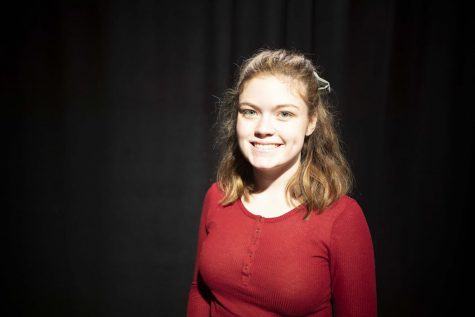
A real renaissance woman, Gillian McMahon, senior, has been a part of the journalism program since freshman year. Starting in yearbook and quickly working...


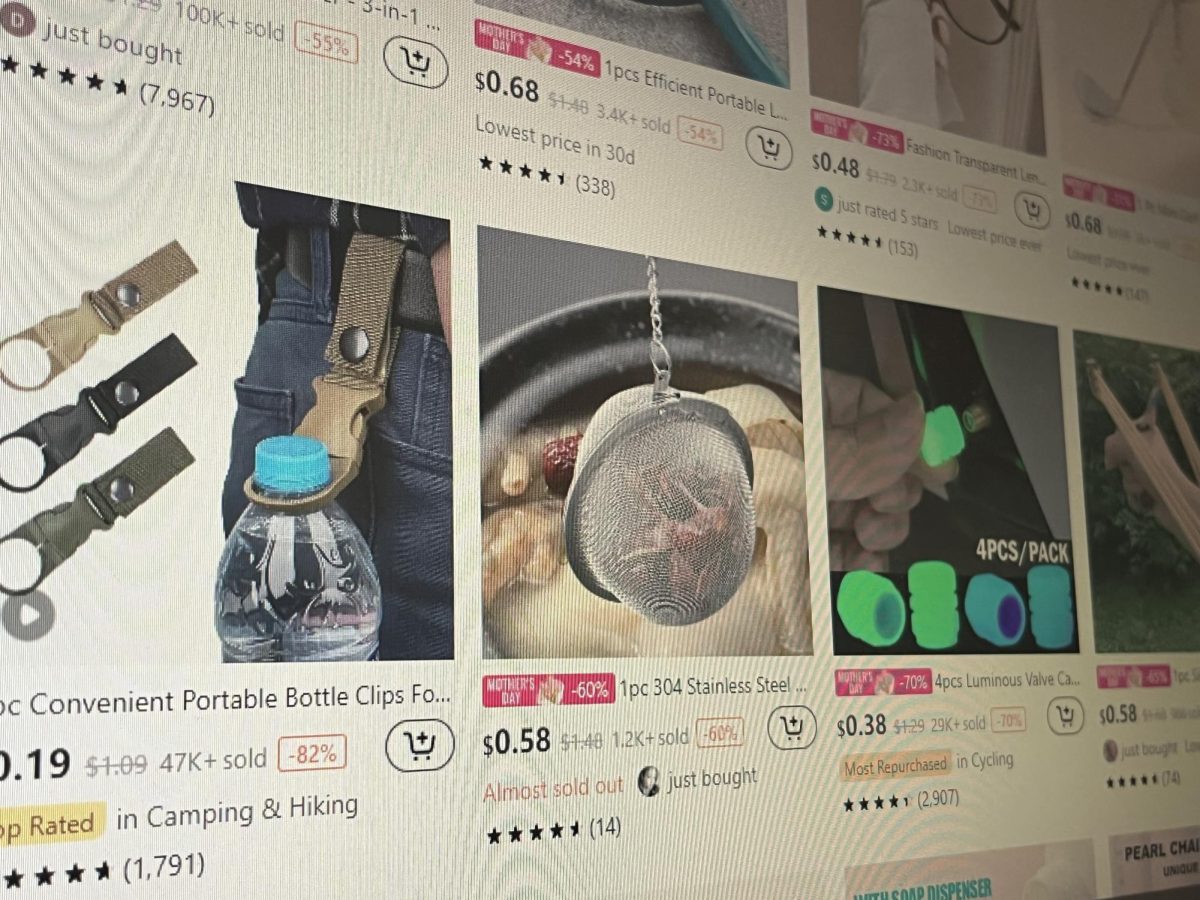























![Game, set, and match. Corbin Atchley, sophomore, high fives Sanam Sidhu, freshman, after a rally with other club members. “I just joined [the club],” Sidhu said. “[I heard about it] on Instagram, they always post about it, I’ve been wanting to come. My parents used to play [net sports] too and they taught us, and then I learned from my brother.”](https://wlhsnow.com/wp-content/uploads/2024/03/MG_7715-2-1200x800.jpg)





![The teams prepare to start another play with just a few minutes left in the first half. The Lions were in the lead at halftime with a score of 27-0. At half time, the team went back to the locker rooms. “[We ate] orange slices,” Malos said. “[Then] our team came out and got the win.”](https://wlhsnow.com/wp-content/uploads/2023/10/IMG_2385-1200x800.jpg)





![At the bottom of the third inning, the Lions are still scoreless. Rowe stands at home plate, preparing to bat, while Vandenbrink stands off to the side as the next batter up. Despite having the bases loaded, the team was unable to score any runs. “It’s just the beginning of the season. We’re just going to be playing out best by June, [and] that’s where champions are,” Rowe said.](https://wlhsnow.com/wp-content/uploads/2024/03/IMG_3077-1200x900.jpg)







